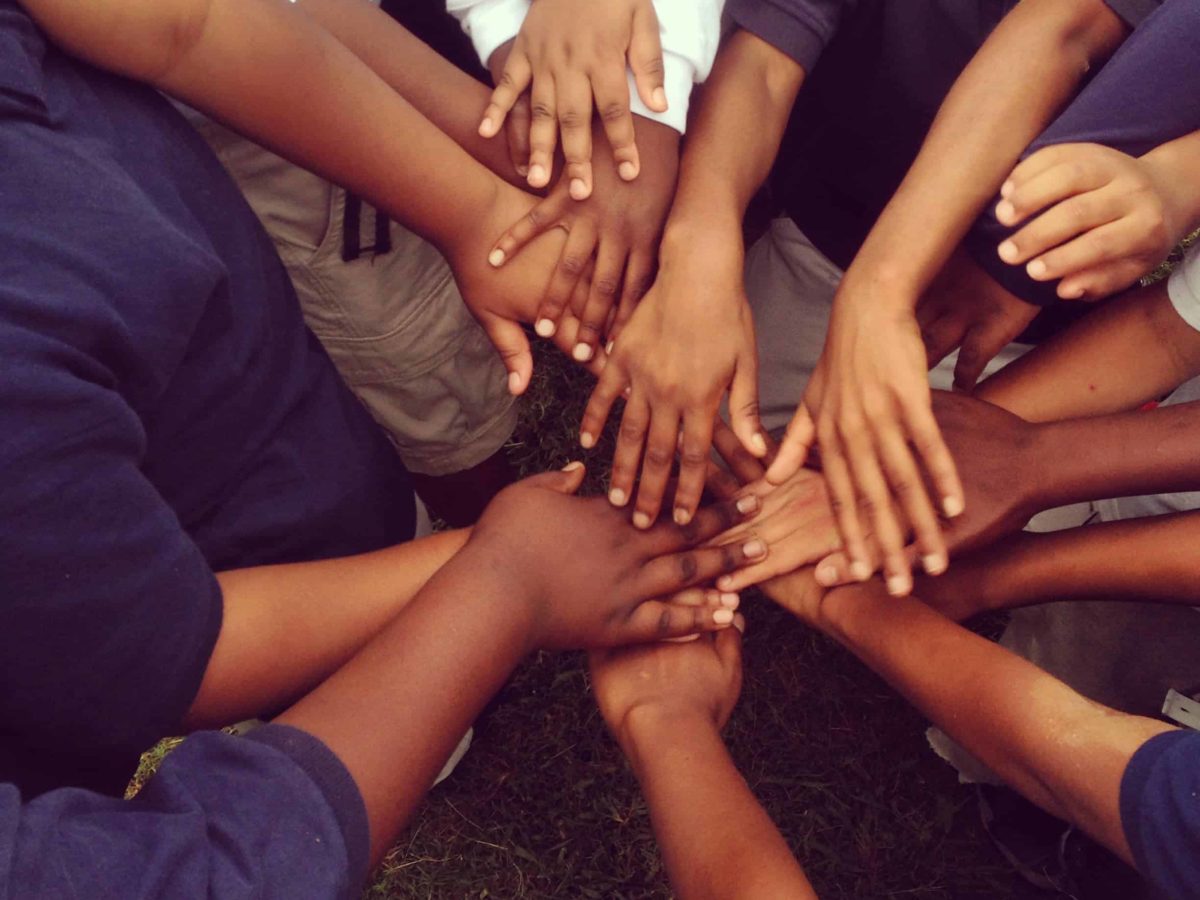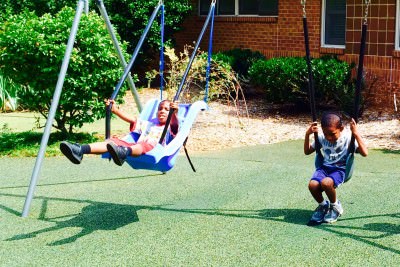
Growing up, sports were a huge part of my life. In college, I loved my classes, my friends, nights downtown, but none of it compared to how I felt when I stepped onto the field in my soccer jersey. Playing at Virginia Tech taught me so much – from finishing a cross to just plain finishing what I started. What I didn’t know then is that so much of what I was learning was pointing me to a career I hadn’t fully anticipated and a group of students I can’t picture my life without.

Teaching first came onto my radar when I learned about Teach for America during a course I was taking on service-oriented careers. As I heard more about the program and the deep injustices it was part of trying to address, I knew I wanted this movement for equity to be my next team. So I applied, joined, and got my start.
As I found my feet in the classroom, I had to grow quickly – from public speaking to classroom management. As I did, I also began to recognize the parallels between my life as a college athlete and my work on education’s front lines. And as I think about what it will take to grow a next generation of teachers as diverse as the students they’ll lead, I can’t help but wonder if we’re doing enough to help our young people picture themselves at the front of the classroom. A new study suggests that just 4 percent of North Carolina high school students aspire to be teachers – well below the national average. But for people who love a challenge and want take pride in what they do, it doesn’t get much better than this.
To use my own example, I knew I loved collaboration, comradery and pursuit of a common goal but hadn’t drawn the connection between those passions and the career I now count among them. All those times I had to play, and play well, in front of hundreds of people? They taught me how to perform under pressure. Those games where we had to come back from behind? That translates to resilience. The hundreds of hours spent getting lost in my sport with teammates, working together to and press toward our goals? These are foundational skills and mindsets that principals and parents look for in teachers. Combined with the right training and support, they make great things possible.
In my classroom, my kids and I are a team. In order to succeed, we have to work together, communicate, trust one another, take responsibility for and learn from our mistakes, and overcome the significant challenges in front of us to reach our goals. In short, we have to leave it all on the field.
And when we reach our goals I feel the same rush I once got from scoring the game-winning goal. I felt it when all of my second graders managed two years of reading growth last year. I felt it when each could name a college he or she wanted to attend and explain what it would take to get there.
As athletes, we strive to jump higher, run faster, push farther. When we become teachers, we ask our kids to do the same – give their all and reach new heights. It’s a legacy that lives on long past any conference title or national championship.
One of my students knows this well. He came to me in second grade struggling to read a sentence. He worked tirelessly in third grade to pass his state test in reading, only to miss the passing score just barely. But he didn’t give up and neither did I. We found ourselves together again his fourth grade year and, this time, when he got his scores back, he had passed. We both burst into tears. Then he cracked a smile that I will never forget. Victory never tasted so sweet.




